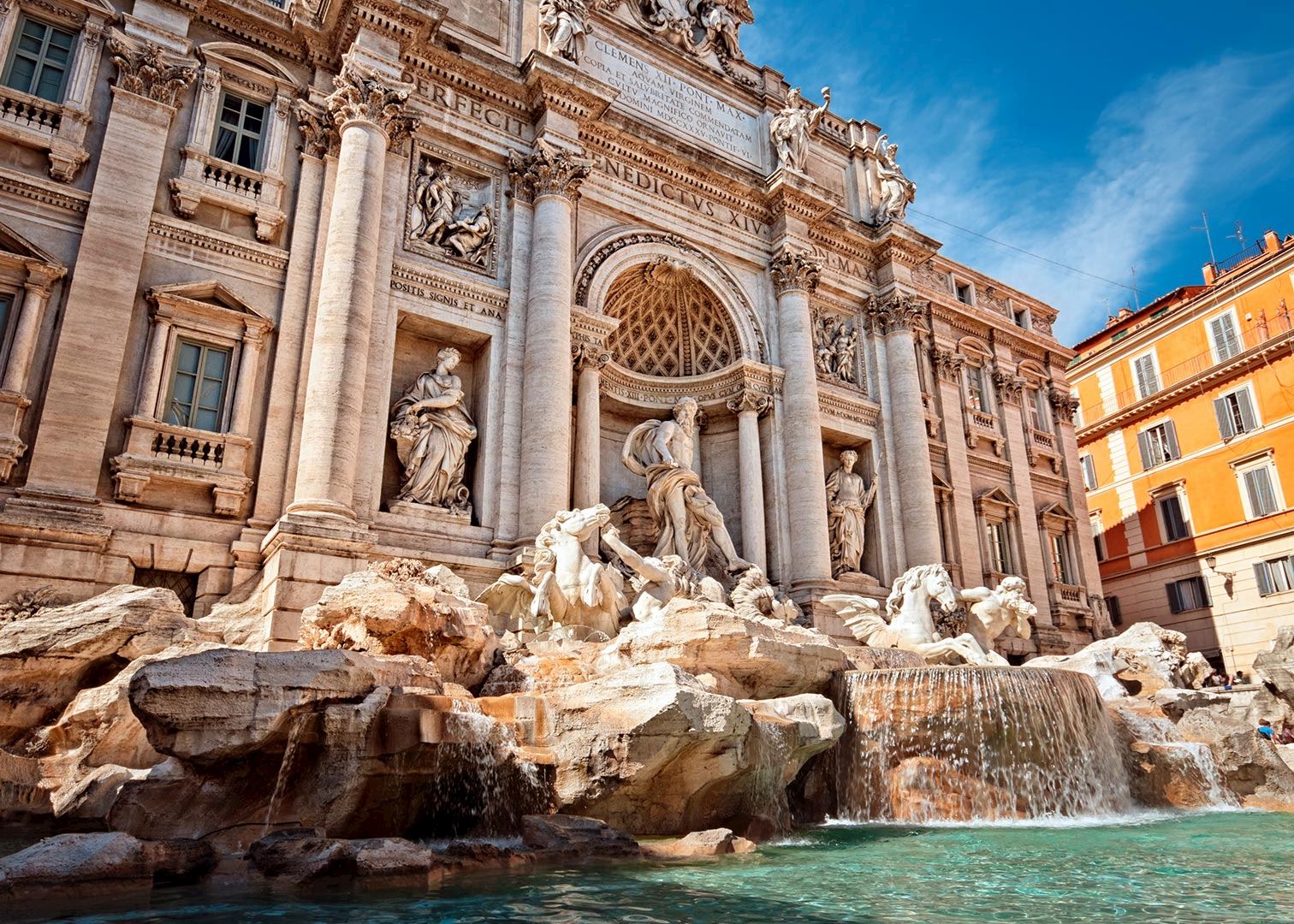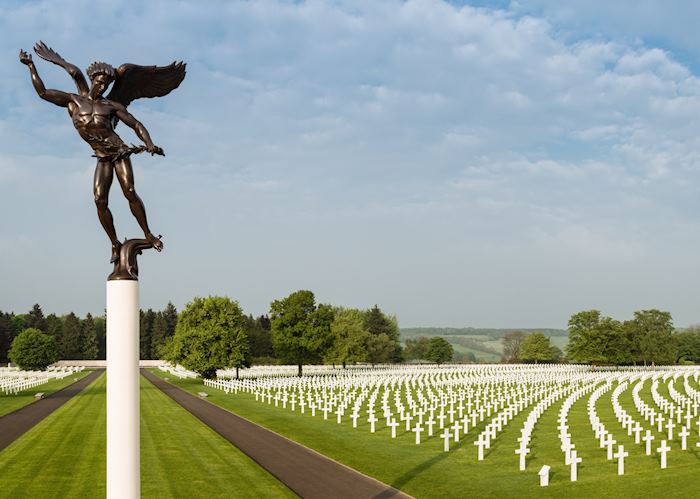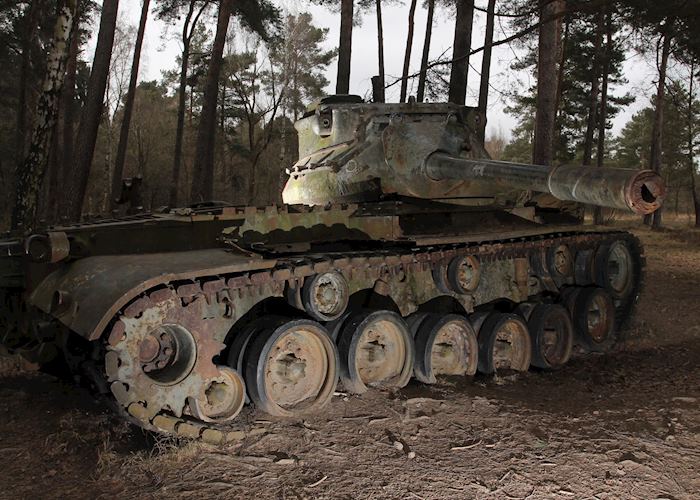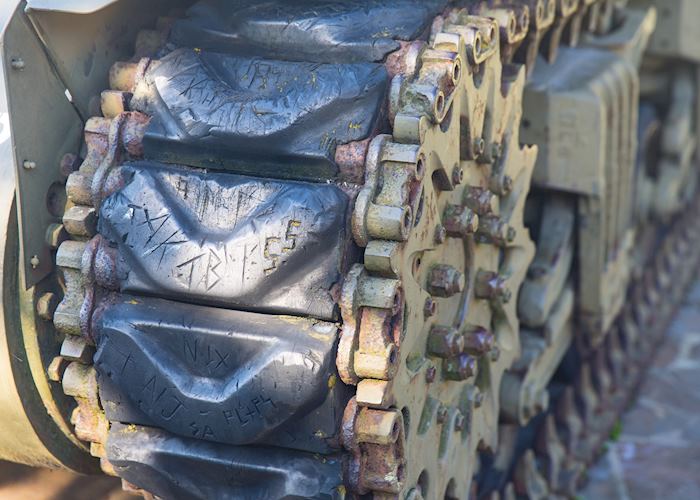On this tour, you’ll explore the history of one of the last decisive battles of World War II, the Battle of the Bulge. Follow the trail of the leader who secured the Allied victory, General George Patton, through some of the places where it happened.
Start your day at the General Patton Memorial Museum in Ettelbruck, the city Patton and his Third Army liberated on Christmas Day in 1944. The museum is a trove of historical exhibits and objects related to the battle and to Patton’s life. Further north, at the site of the old Diekirch brewery, is the National Museum of Military History, considered one of the best for World War II knowledge.
At the end of the day, you’ll visit the Luxembourg American Cemetery and Memorial, the burial place of the US soldiers who died in the battle. General Patton, who died shortly after the war, was also buried there at his request.
Through visits to Luxembourg’s finest and most detailed history museums on the subject, as well as to the cemetery where fallen American troops are buried, you’ll get a deeper look at the last major German offensive of World War II. You’ll also get to know the American general who was pivotal in holding it back, General George Patton.
Your driver will pick you up and drive you to your first stop of the day, the General Patton Memorial Museum. Located in the town of Ettelbruck, the museum is focused on the Battle of the Bulge, the liberation of Luxembourg and the life of Patton.
The battle, whose name comes from the expanding wedge the German troops put into the Allied lines in Belgium and Luxembourg, ended in a victory, but only after many lives were lost. Certain US forces in particular — including the all-African American 969th Artillery Battalion — held out against the siege, until Patton and the American Third Army were able to get in and provide relief. Patton, who became something of a folk hero after the war, also has an exhibit at the museum dedicated to his life.
Your next stop is Diekirch, and the old brewery that now houses the National Museum of Military History. Widely regarded as one of the best museums covering World War II history, while also featuring exhibits about other conflicts, the museum is worthy of at least a two-hour visit.
The museum has a vast collection of military vehicles, equipment and personal items, as well as photos, documents and maps from the period. You’ll also see life-size models depicting the difficulties faced by both soldiers and civilians. You can talk with your specialist about your specific interests, and the amount of time you’d like to spend here.
You will likely find lunch in Diekirch, then head out to the Luxembourg American Cemetery and Memorial. Established in December of 1944 as the final resting place for 5,073 US soldiers who died during the Battle of the Bulge, the cemetery’s white memorial building is flanked by rows of white crosses and Stars of David, planted in strict formation on a manicured green.
After General Patton died in a car crash shortly after the war ended, he was also interred here in accordance with his wishes to be buried alongside his men. While his grave has pride of place separate from the soldiers, his white marble cross is identical to theirs.
who's been there
Start planning your tailor-made trip by contacting one of our Luxembourg specialists
-
01993 838 92501993 838 407
- Make an enquiry



